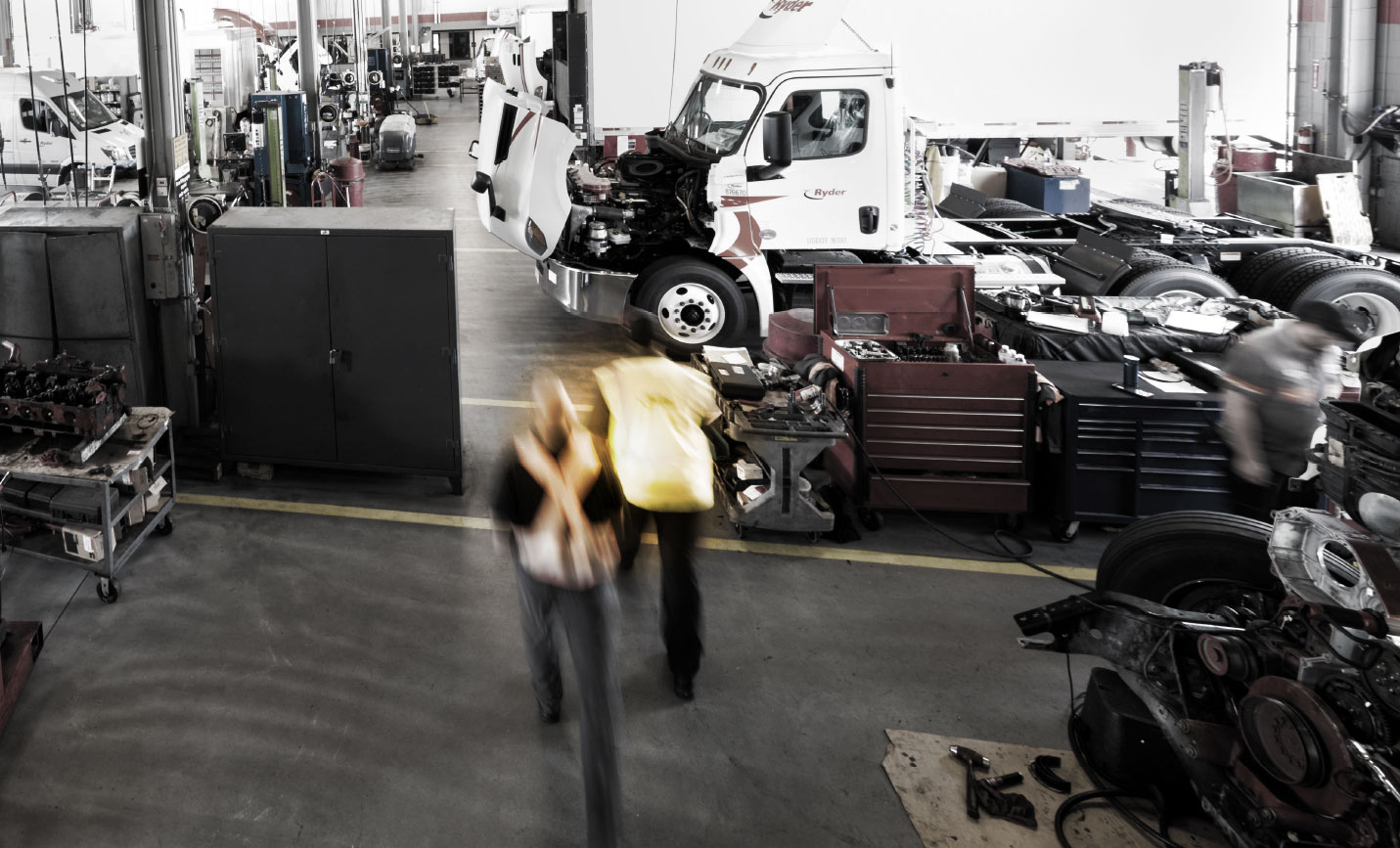We believe that we have a responsibility to give back to the communities where we work and live.
Ryder has a long legacy of giving dating back to our founder and first CEO, Jim Ryder. Through strategic giving partnerships with charitable organizations that we’ve developed over many decades, we are able to magnify our impact many times over. Our giving partnerships with more than 100 charitable organizations reflect the leadership and engagement of our employees in their communities. Ryder encourages employee volunteerism with both our funded charities and with organizations of their choice.
Our Approach
Jim Ryder, who founded the company in 1933, was a leader in developing the giving infrastructure of the Miami community, including helping to bring Goodwill Industries to the city in the late 1950s. As the company grew, so did its commitment to communities across the nation and beyond. Since then, each CEO, along with our employees, has maintained Ryder’s commitment to giving back.
Ryder Foundation Board
In 1984, the company established the Ryder Charitable Foundation to provide an effective way to support charitable organizations and guide our giving strategy. The Foundation’s Executive Director supervises its operations. Ryder’s Foundation Board—made up of Ryder’s Chief Executive Officer, Chief Marketing Officer, Chief Financial Officer, and Chief Legal Officer—oversees the Foundation, including approving its annual budget. Each year, the Foundation board reports annual charitable giving to the Corporate Governance and Nominating Committee of Ryder’s Board of Directors. A report is provided to the full Board as well.
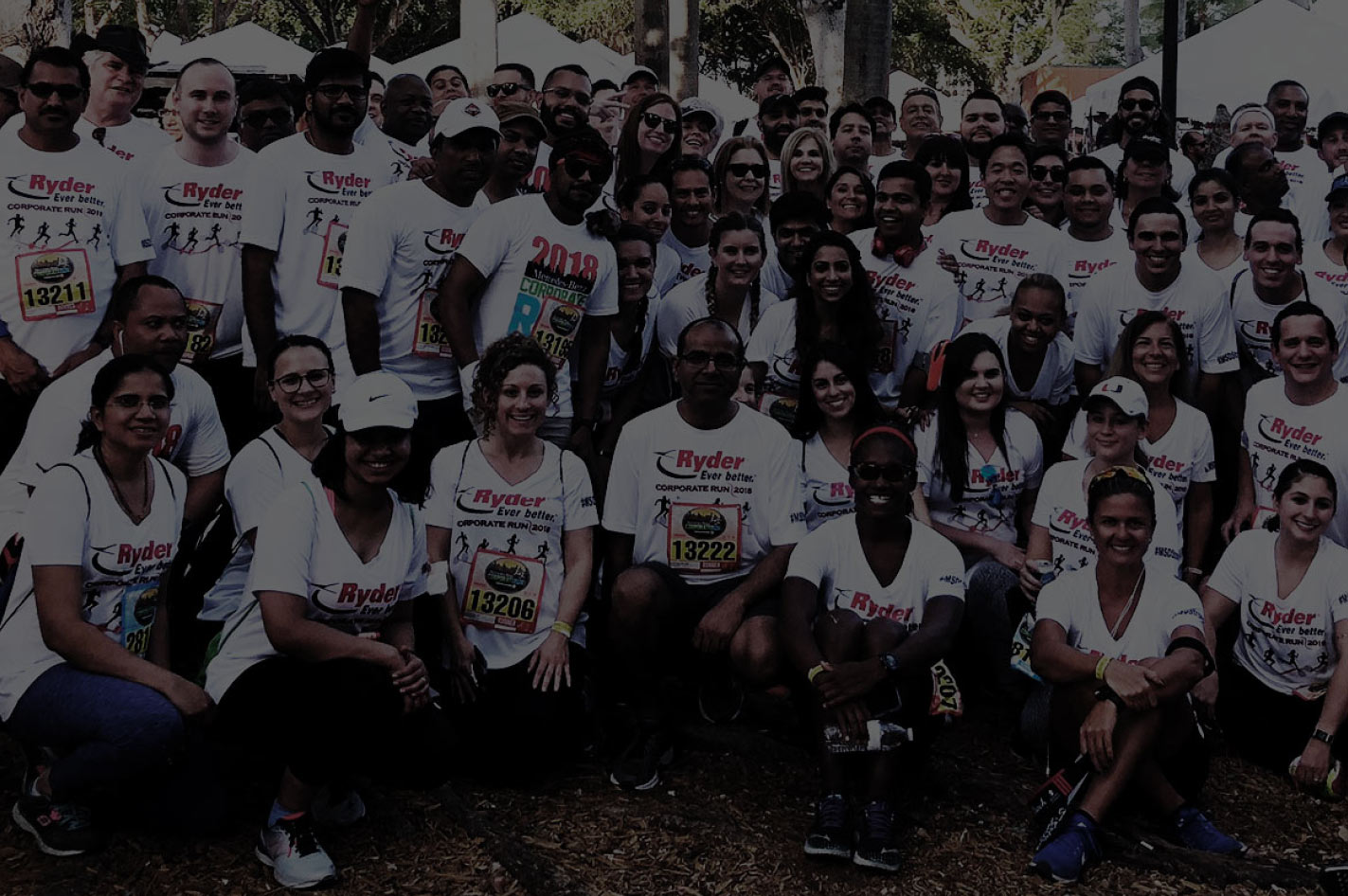
Core Values in Action
The company’s core values—safety, expertise, innovation, and community collaboration—guide our giving strategy. We believe that the same values that are driving our business success also create and sustain thriving communities.
Through partnerships with organizations whose missions align with our core values, we are able to positively impact people and institutions across the country and the world. Within our giving categories, our priorities are:
- Emergency and disaster relief
- Public health and safety
- Education, including vocational technical training
- Support for military veterans and their families
- Social services for children and families in need
- Innovation and research related to our industry
disaster relief
and safety
military veterans
services
and research
For more information, visit our Charitable Foundation & Corporate Giving page.
Safety
Reflecting the company’s concern about the devastating impact of disasters on communities across the country and abroad, disaster relief has long topped the list of Ryder’s giving priorities. We provide extensive funding and contributions of expertise and transportation services—including deployed trucks and warehouse space—to disaster relief efforts. In addition to a significant financial contribution each year to keep communities safe during and after natural disasters, we also provide in-kind support. Ryder has been a strong partner of the American Red Cross since 1991, and has played a major role in relief efforts and in rebuilding the communities we live and work in after hurricanes and other major disasters.
As a Disaster Responder member of the American Red Cross Annual Disaster Giving Program, Ryder provides financial support, transportation services, vehicles, and volunteers to the organization each year. We support and take part in a coordinated national effort to prepare for disasters and move supplies to affected people and communities. Ryder regularly engages with the Red Cross after a disaster to identify how to best support recovery efforts. Through our robust network and logistics expertise, our teams are able to provide essential services, such as delivery of water and other goods to hard-stricken areas. The Ryder Charitable Foundation works with each business location to develop a customized response to the needs of the community. For example, after Hurricane Florence in September 2018, we deployed 29 trucks to North and South Carolina to support relief efforts.
With more than 9,500 drivers, Ryder, through a giving partnership with Truckers Against Trafficking, helps lead a national industry effort to locate victims of human trafficking and save lives. Recognizing that our drivers were uniquely positioned to spot human trafficking on the nation’s roadways, Ryder partnered with the organization by funding important programs designed to protect victims and preparing Ryder drivers to save lives. Truckers Against Trafficking trains all of our drivers to spot and report human trafficking. In total, the organization has trained more than 622,000 drivers and identified more than 1,000 trafficking victims.
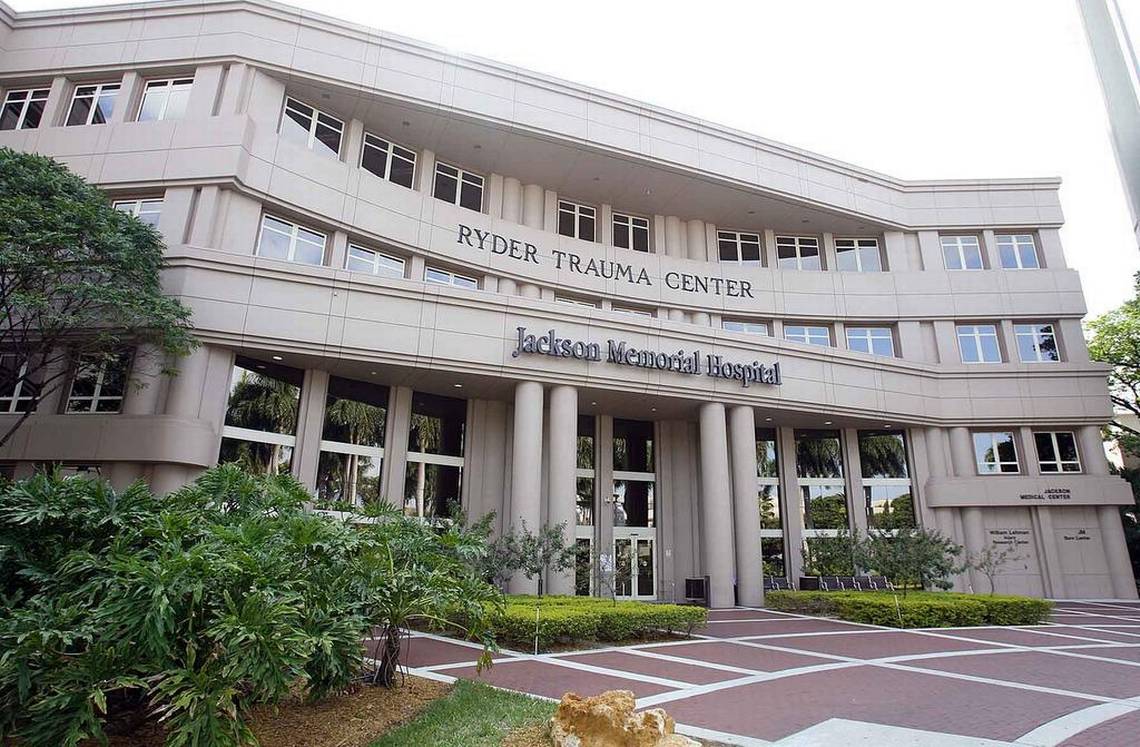
Highlight Story: Miami's Jackson Memorial Hospital
In 1991, the Ryder Charitable Foundation donated $2.5 million to Miami’s Jackson Memorial Hospital for the construction of a Level I trauma center, the only Level I center in Miami-Dade County and one of only two in Florida. The following year, Ryder Trauma Center opened mere weeks before Hurricane Andrew devastated south Miami-Dade County. The Center’s 20,000-pound Blackhawk helicopter was instrumental in the airlifting of victims from disaster sites. Ryder has continued to be the naming benefactor for what has become a world-renowned medical facility that has saved thousands of lives. In 2001, the U.S. Army selected Ryder Trauma Center as its only national Army Trauma Training Center to enhance the clinical skills and experience of its Forward Surgical Teams before deploying for combat. Ryder Trauma Center is also designated to treat the President of the United States and other dignitaries if the need arises.
Collaboration
Ryder supports the efforts of the YMCA of South Florida to foster youth development, healthy living, and social responsibility. Specifically, their initiatives to promote water safety are critical in Florida, which leads the nation in accidental drownings. With our corporate headquarters in Miami, Florida, our partnership supports the communities in which many of our employees and their families live.
Ryder also partners with United Way across our locations, supported by our employees’ time and resources. This partnership enables our employees to work with and support organizations most meaningful to them that impact the health, education, and financial stability of underserved children and families in their communities.
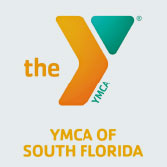

Expertise
Ryder supports various educational programs that provide opportunities to students in fields relevant to Ryder’s operations. We sponsor five scholarships annually to women entering the supply chain logistics field via the United Negro College Fund, which supports minorities in attending and graduating from college.
We also support the ASE Education Foundation, which inspires and prepares young people to pursue careers in the automotive service industry. Their work certifies entry-level automotive technology education programs against automotive service industry standards, helping develop a talent pool for Ryder and the industry. Some of Ryder’s employees lead these trainings and mentor students, and we have an Executive Sponsor who sits on the ASE Board.
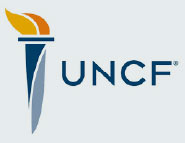
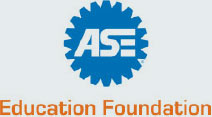
Innovation
Ryder partners with the University of Miami’s Capstone Project to provide opportunities for undergraduate students in engineering to solve real-world corporate problems. Students come to Ryder to develop solutions to technical problems, which they present to our Executive leadership. This opportunity gives them experience and exposure to real-world situations, enhancing their hands-on education.
As part of Ryder’s commitment to diversity in our industry, we partner with Women in Trucking, an organization dedicated to developing and promoting innovations in the trucking industry in order to more effectively attract women drivers. Ryder is a founding Board member, and has worked closely with them to improve truck ergonomics that make truck driving safer and more accessible for women. To learn more about our involvement with Women in Trucking, see Human Capital, Diversity, & Inclusion.
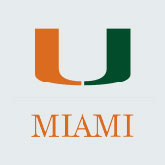

Ryder Employees are Driven to Serve
Employee volunteer initiatives are a key part of our giving, and we believe that employees who give their time and resources to positively impact their communities deserve our support.
Some of the Ryder team efforts include:
- Volunteering as “Bigs” for Big Brothers Big Sisters and initiating Ryder’s School to Work program for students who visit Ryder headquarters for activities each month during the school year
- Creating sensory books for children with disabilities as part of our United Way campaign
- Teaching students financial literacy each year through a partnership with Junior Achievement
- Installing life-saving smoke detectors as part of the American Red Cross Sound the Alarm campaign
- Building homes for Habitat for Humanity
- Collecting toys, funds, and holiday food for families and children with disabilities; Ryder employees also use a company truck to deliver to families who cannot pick up the items.
- Running breast cancer awareness events in conjunction with the Susan G. Komen Foundation, including facilitating the use of mobile mammogram units for a day at Ryder hubs in Miami and Atlanta, creating an employee-led team for the organization’s More Than Pink Walk, and wrapping a truck in pink and donating the use of the truck for the walk.
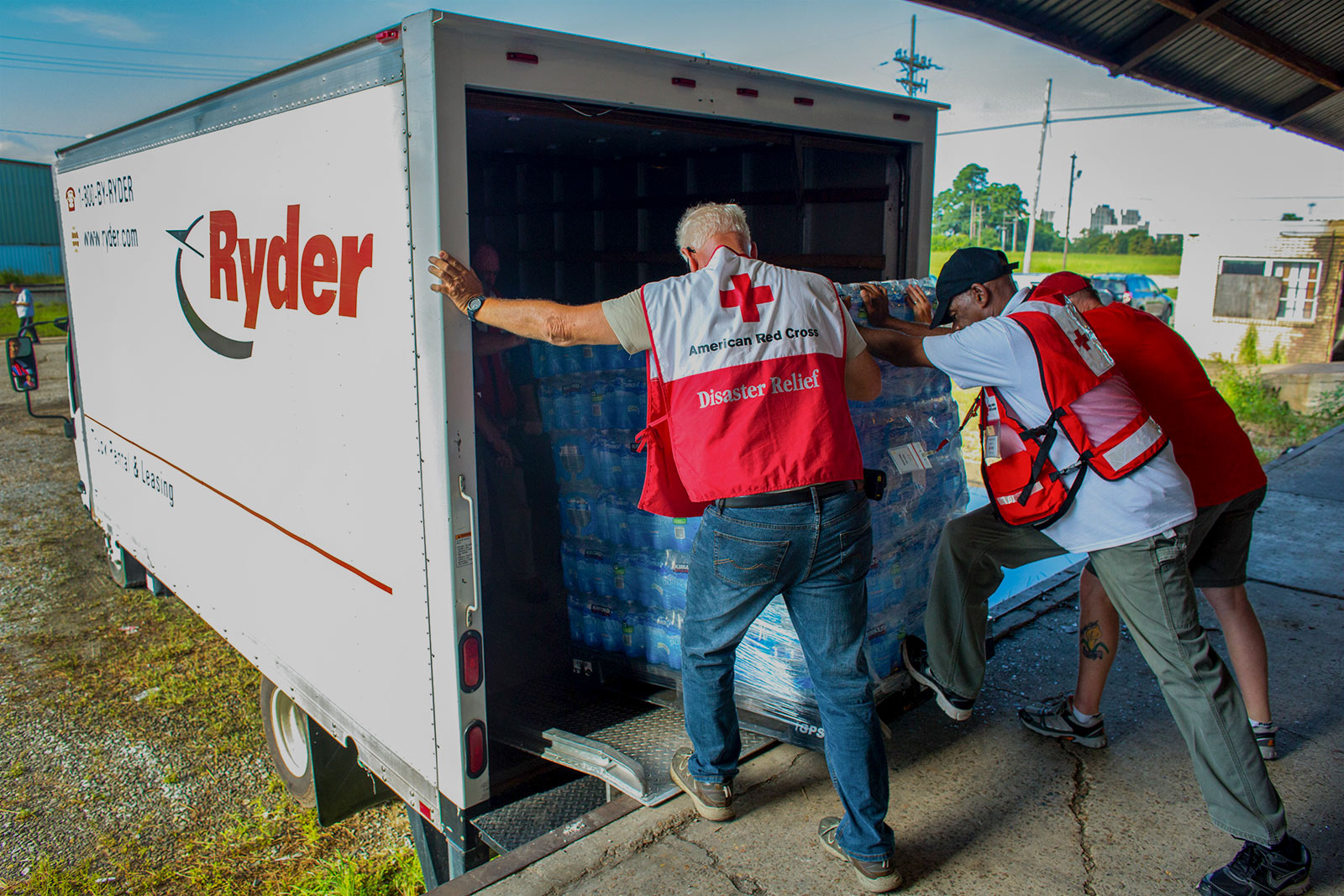
Measuring our Impact
We contributed more than $2.6 million annually in both 2017 and 2018, to our charitable partners through corporate contributions and the Ryder Charitable Foundation. However, our impact extends well beyond our charitable contributions. So much of our impact on our communities comes from personal contributions of individual donations and volunteer time made by our employees in their own communities.
